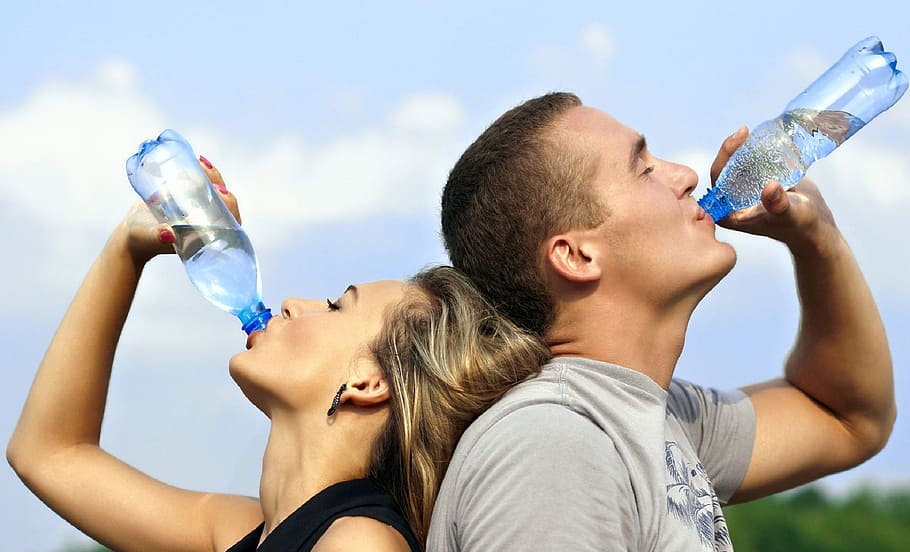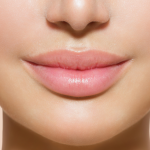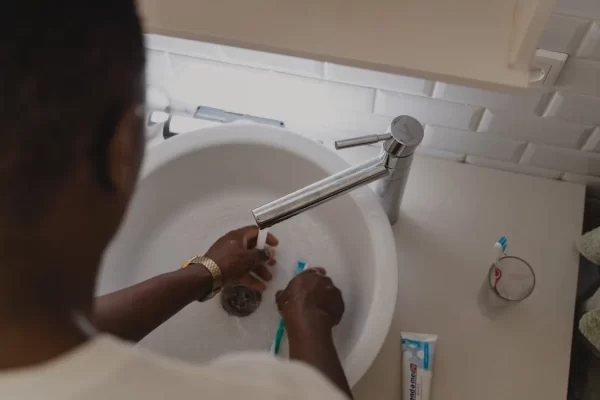When your body loses a higher amount of fluid than what you intake, your body would slowly lose the adequate amount required for regular functioning. Thus, dehydration starts. The signs and symptoms of dehydration might be subtle, but the risk of dehydration is prominent, especially in young infants and older individuals. Here are the signs and symptoms, and ways to rectify them.
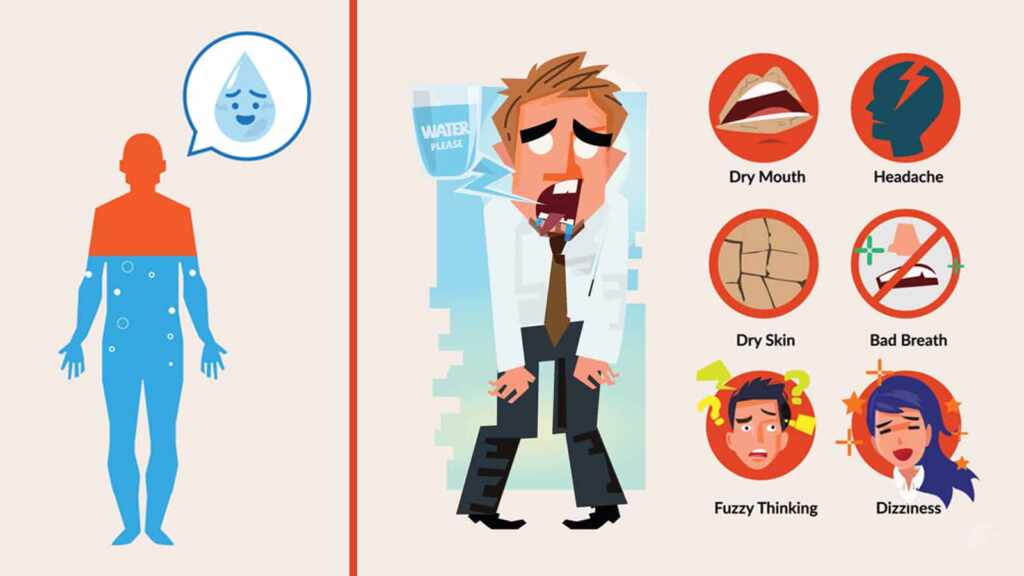
Table of Contents
Illness could lead to dehydration
Vomiting and diarrhea are two main symptoms of several disorders, mild and severe. These two symptoms can lead to the loss of electrolytes and water rapidly. Thus, if you have severe vomiting or diarrhea, you are more likely to get dehydrated. Since you are already in pain or discomfort, you might miss the obvious signs and symptoms of dehydration like extreme thirst, dizziness, dry mouth, and fatigue.
If diarrhea or vomiting lasts for more than 24 hours, it is best to consult a doctor. In other cases, it is essential to consume ORS or just water, as frequently as possible.
Increased urination
It is a common misconception that urination or sweating is a sign of excess fluid in the body. Several diuretics like blood pressure medicines, diet pills, and others can cause excess urination. Uncontrolled diabetes can lead to frequent urination, which might be one of the signs and symptoms of dehydration.
A healthy person urinates between 6-7 times a day. If you had consumed more fluids in a given day, it is natural to urinate more than 8 times a day. But, if you are urinating once an hour or more than 8 times even with normal fluid intake, it is time to talk to your doctor. However, the frequency of urination varies with season, type of food, and more. For instance, consuming caffeine can lead to frequent urination, which is normal.
On the other hand, less frequent urination and dark-colored urine are also symptoms of severe dehydration. In such cases, it is essential to consume water at regular intervals. Remember that caffeine-filled drinks and alcohol will not help you in this process.
Signs and symptoms of dehydration during exercise
During exercise, you are more likely to lose more fluid as sweat. Many caffeinated sports drinks would add more harm to this process by flushing out more fluid from your body. If you have diluted urine, it is due to sweat dehydration. It is a common misconception that one should not consume water right after exercise or during one. It is imperative to keep your body hydrated to avoid fatigue, muscle damage, and more.
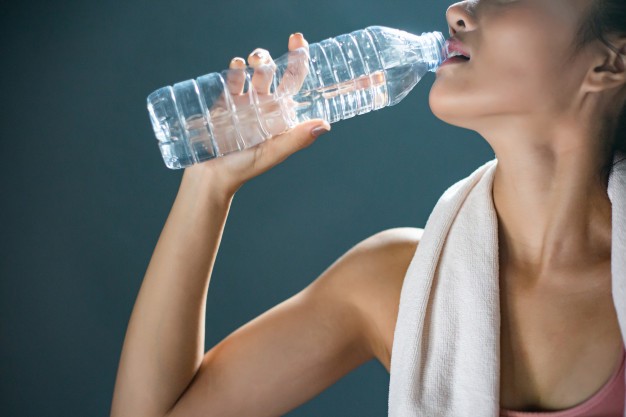
Experts recommend you to drink more water from the day before you start exercising. During exercise, you should take adequate breaks to consume fluid, and also after the session.
Dry mouth and tongue
Dry mouth and tongue are important signs and symptoms of dehydration, especially during the hot or humid season. During extreme cold or hot season, your body loses more fluid via your skin due to exposure to dry air. It is also quite common in higher altitudes. Ironically, during cold seasons or at higher altitudes, you do not tend to be thirsty. However, it is best to remind yourself to drink more water than usual under these circumstances.
Methods to deal with sign and symptoms of dehydration
The first sign of dehydration is thirst, which most people overlook. Dark-colored urine and fatigue are the signs that strike an alarm in many. What should you do in this situation? Drinking water is the primary way to combat dehydration. However, it is not easy to drink eight to ten glasses of water, especially when it is too cold, or you are having a busy day running from one errand to another. Here are a few other ways to deal with dehydration.
Tea and coffee for dehydration
Too much caffeine would increase the frequency of urination. However, a moderate dose of caffeine (less than 250mg) per day, equivalent to less than three cups of coffee or eight cups of tea would help to hydrate you. Coffee and tea have the same ability as water when it comes to hydrating your body.
Replace full fat milk with skim or low fat milk
Full fat milk might lead to vomiting or diarrhea if you are suffering from any illness. Or, if you are already experiencing diarrhea or vomiting, it is best to try low-fat milk or skimmed milk. Milk offers all the required electrolytes along with water. Milk is a good beverage to drink right before you exercise.
Fruits and vegetables can reduce the symptoms of dehydration

Many fruits and vegetables contain more than 80% of water. On the other hand, chips, cereals, and crackers have just 9% or less water. Thus, avoid processed food and add more fresh produce like orange, grape, berry, melon, spinach, cabbage, lettuce, carrot, and more. Smoothies made from frozen fruits are as healthy as fresh juice. Instead of choosing a hydrating sports drink, you can try fruit smoothies made of milk or yogurt.
ORS
The oral rehydration solution is a mixture of water, sugar, and salt. It might not taste good, but it is efficient in reducing the risk of dehydration. Add six teaspoons of sugar and half a teaspoon of salt to one liter of water to make ORS. You can also add a dash of lime, orange, or others to make it a little bearable to drink.
Common dehydration symptoms are headache, black stool, infrequent or very frequent urination, dry skin and mouth, increased thirst, fatigue, tiredness, and headache. If regular water consumption is not reducing the symptoms, it is imperative to get medical help immediately. Extreme dehydration can cause severe complications and could lead to fatal situations. A doctor could treat you with IV fluids to immediately replenish your body with adequate fluids to avoid brain damage or a drop in blood pressure.
Frequently Ask Questions
What is dehydration, and why is it a concern?
Ans: Dehydration occurs when the body loses more fluids than it takes in. It can lead to serious health issues if left untreated, such as dizziness, fatigue, and even organ failure.
Q: What are the common causes of dehydration?
A: Dehydration can result from excessive sweating, inadequate fluid intake, vomiting, diarrhea, or certain medical conditions like diabetes.
Q: How can I determine if I am dehydrated?
A: Look out for symptoms like increased thirst, dry mouth, dark urine, fatigue, dizziness, or dry skin. Skin elasticity test (pinch and release) is also a simple way to check hydration levels.
Q: What is the fastest way to rehydrate my body?
A: The fastest way to rehydrate is by drinking fluids that contain electrolytes, such as sports drinks or oral rehydration solutions. These help replenish essential minerals lost during dehydration.
Q: Is drinking water enough, or should I consume electrolyte drinks?
A: While drinking water is essential, replenishing electrolytes is equally important. Electrolyte drinks or coconut water can provide a quicker and more effective rehydration solution.

